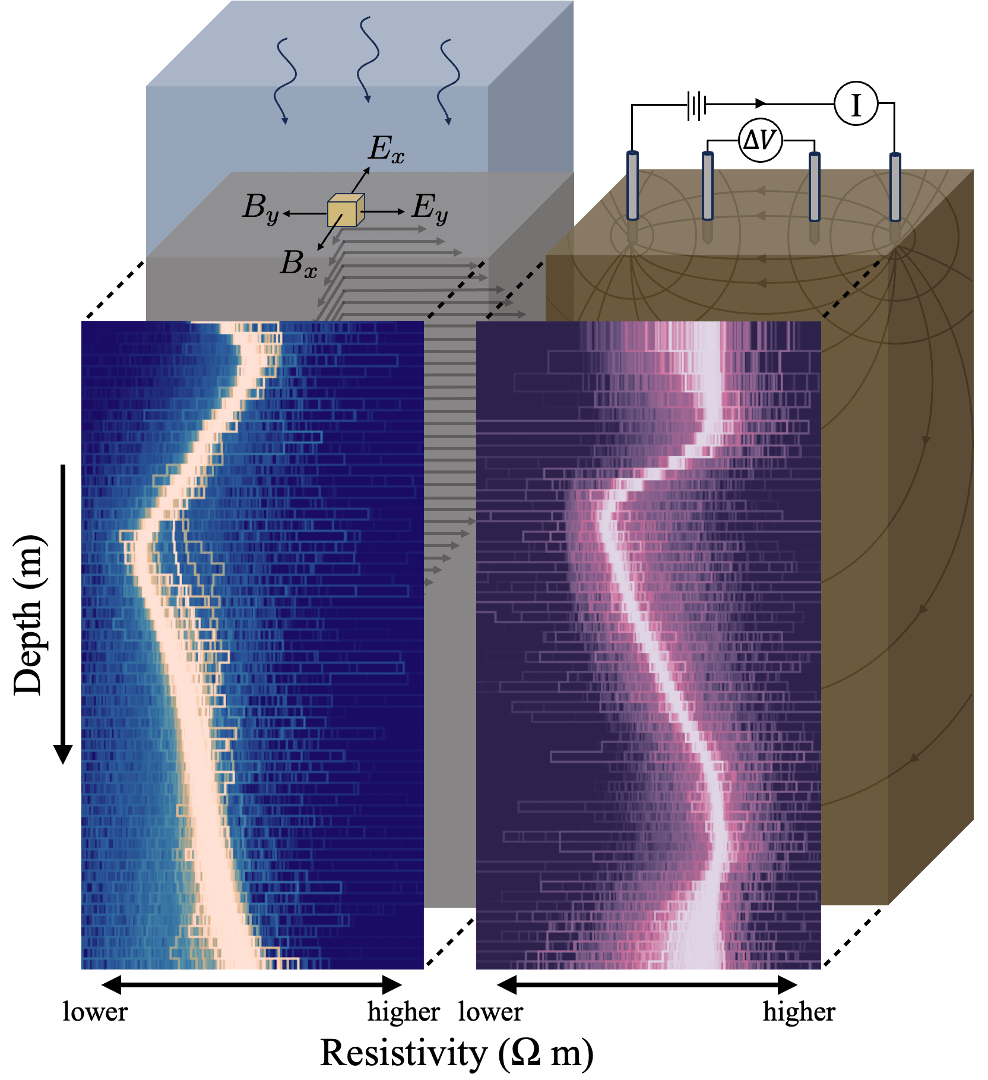14:00 at NERSC Copernicus lecture room.
Talk by Kristian Fossum (NORCE).
Abstract
This study introduces a pioneering approach at the intersection of generative artificial intelligence and geostatistics for reservoir history matching. Leveraging the latest conditional Generative Adversarial Networks (GANs) with spatially adaptive denormalization (SPADE), we establish a novel ensemble-based workflow that effectively captures complex geological patterns. The Ensemble Randomized Maximum Likelihood method assimilates data into an ensemble of coarse-scale maps, interpreted as the channel proportions, that serve as SPADE-GAN input. We demonstrate this Bayesian data assimilation on a combination of “hard” well data and “soft” flow data, thus extending the usability of pre-trained SPADE-GANs in subsurface applications. Our numerical experiments convincingly demonstrate the method’s capacity to replicate previously unseen geological configurations beyond its training data. This proficiency proves particularly valuable in data-scarce scenarios typical for renewable geo-energy, where the GAN captures realistic geology, but its output geomodels need adjustment to match observed data. Furthermore, our fully open-source developments lay the foundation and provide the starting point for future multiscale enhancements.
The paper was presented at the Fifth EAGE Conference on Petroleum Geostatistics.




